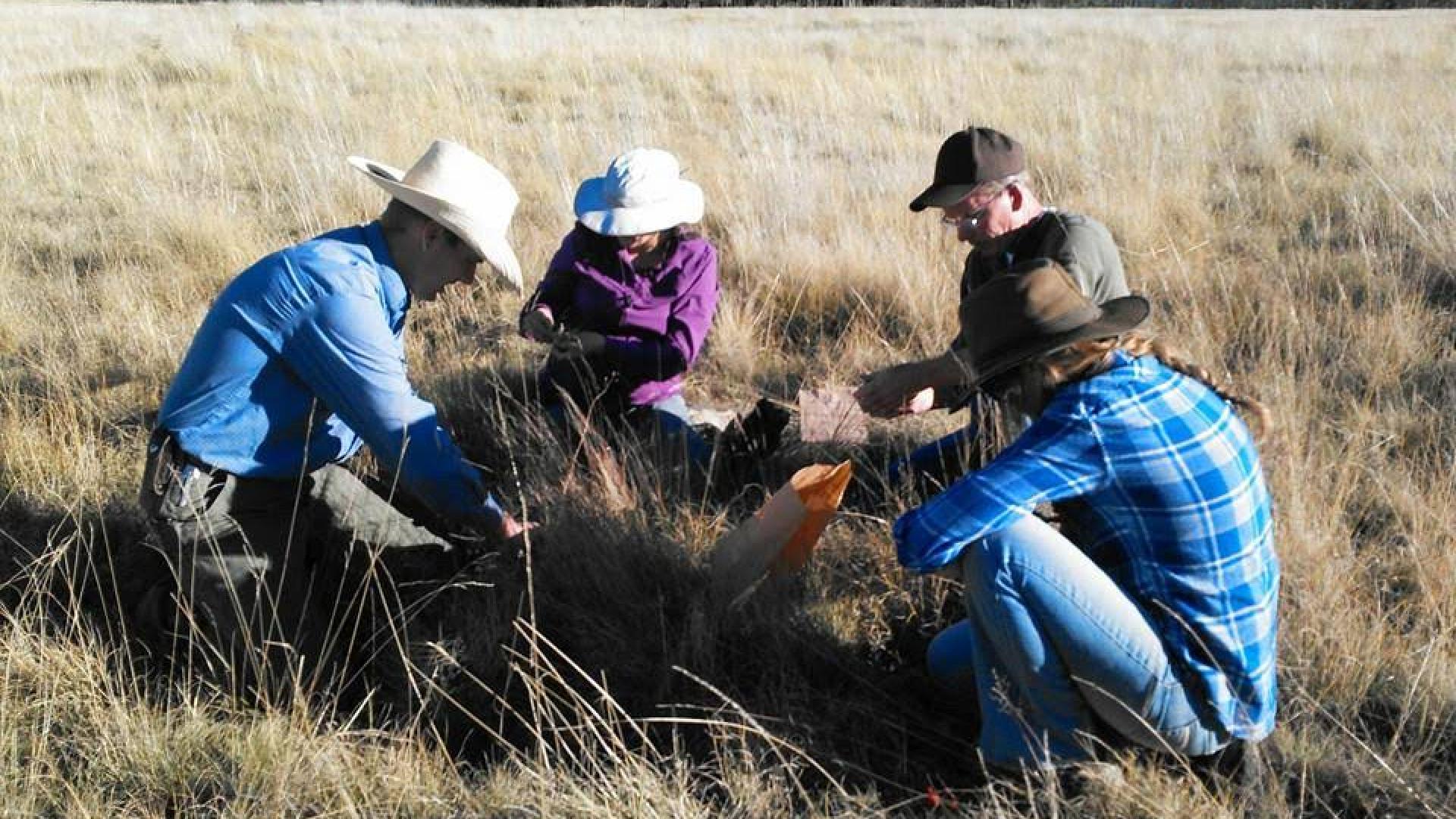
- Body
Overview
Public and private land managers are often experts in managing their own ranches or the adjacent public lands. However, they may not have access to the latest science that can help them solve challenging problems. Scientists at universities and government agencies are constantly producing new information about the management of rangelands, but this information may not directly respond to the questions ranchers and other land managers have about specific problems. This disconnect can prevent improvements in management. The idea of co-production of science was developed to respond to this issue.
Co-production is a term used to describe the process of scientists and land managers working together to develop research questions and methods for studying a problem. Instead of producing information that may or may not be helpful and delivering it at the end of a research project, scientists work with land managers to decide what questions are important to ask at the outset. As a result, scientific results are directly responsive to user needs.
Co-production is a useful tool for adaptive management and collaborative conservation. In adaptive management, land managers establish a management goal and monitor progress toward this goal over time. Range scientists can assist with this process by helping to design scientifically sound monitoring programs. Over time, the results of individual adaptive management efforts can increase knowledge of the functioning of rangeland systems. In collaborative conservation, multiple types of users work together to set goals and implement conservation plans. Many collaborative conservation programs include scientists to help develop conservation goals and monitor outcomes. Co-production also provides a model for the National Environmental Policy Act (NEPA) process.
Videos
SARE. 2018. The Power of Data: Improving the Management of Rangeland Ecosystems
Additional Links
- Co-production of Sustainable Land Systems. Global Land Programme.
- Jasanoff, S., ed. 2004. States of knowledge: The co-production of science and social order. Routledge.
- Knapp, C. N., Fernandez-Gimenez, M., Kachergis, E., & Rudeen, A. 2011. Using participatory workshops to integrate state-and-transition models created with local knowledge and ecological data. Rangeland Ecology & Management, 64(2), 158–170.
- Lauber, T. B., Stedman, R. C., Decker, D. J., & Knuth, B. A. 2011. Linking knowledge to action in collaborative conservation. Conservation Biology: The Journal of the Society for Conservation Biology, 25(6), 1186–94.
- The co-production of livelihoods and land use change: Case studies from South Africa and Ghana. Geoforum, Volume 37, Issue 5, 2006, Pages 790-804.